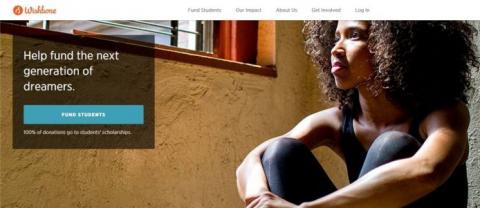Crowdfunding Can Launch Kids’ Futures
Crowdfunding for Good
The notion that crowdfunding can play a role in financing education, and not just experimental films and wacky inventions, is slowly starting to emerge. The most prominent example is DonorsChoose.org, which lets teachers raise money for school supplies. More than 1.7 million backers have helped fund nearly 236,000 teachers. Others outfits, such as UpStart, connect students with investors willing to pay for their education in return for a percentage of future income. All of them are workarounds for an education system that often overlooks the neediest kids.
Wishbone is more than a crowdfunding platform. For starters, not just anyone can launch a campaign. Instead, participants are selected through a lengthy application process that requires a personal essay and an adult sponsor—typically a teacher or coach—who can vouch for the student. Meanwhile, Wishbone works with dozens of summer programs across a range of activities, from academics to athletics to the arts, and negotiates partial scholarships for its students. The organization also seeks corporate and philanthropic funding. Then it’s up to students and their teachers to use Wishbone’s platform to raise the remaining amount, which comes out to an average of $1,000 per student. So far, every student who has had a campaign on Wishbone has been fully funded.
“The reason it works is because we have that teacher who knows the student, who’s sharing the campaign,” Schmidt says. “So there’s a lot of motivation to fund this particular student.”
A Different Point of View
According to Kenneth Herrera, director of college completion at Uncommon Schools, the fact that Wishbone delivers results for students 100 percent of the time was a key reason Uncommon decided to work it. That, and the fact that the summer programs it offers give kids something that, so often, the typical school day does not: exposure.
“They’re exposed to different people, a different environment, and different activities than they’d normally encounter,” Herrera says. “And that makes them more motivated generally by the notion that there’s other stuff out there beyond the normal day to day classroom.”
And often, that enthusiasm tends to spread. Last year, Nicole Doyle raised nearly $8,000 on Wishbone to attend a college prep program at Syracuse. After what she calls a “life-changing experience,” she returned to The Young Women’s Leadership School of Astoria in New York in the fall, determined to encourage every underclassman to apply to Wishbone. “I felt like a different person when I got back. I even wrote my college essay over again,” Doyle says. “I just had a different point of view about what I had to do to stand out.”
Issie Lapowsky

